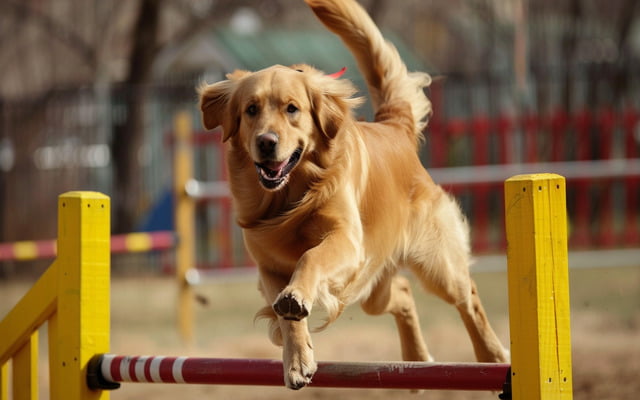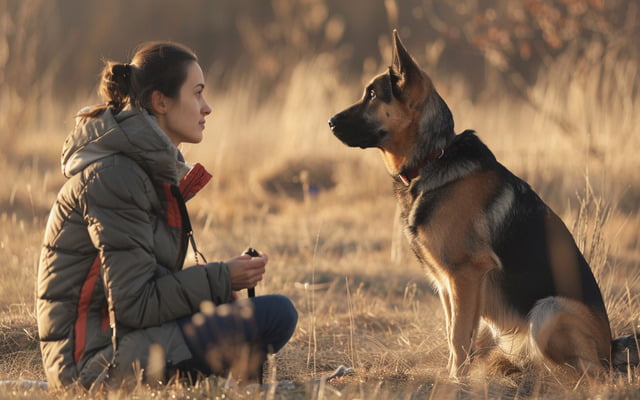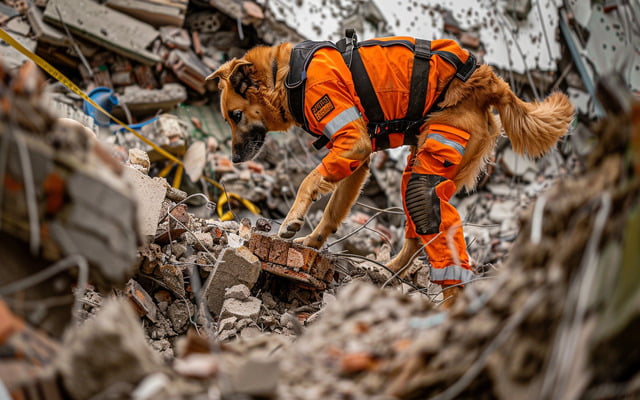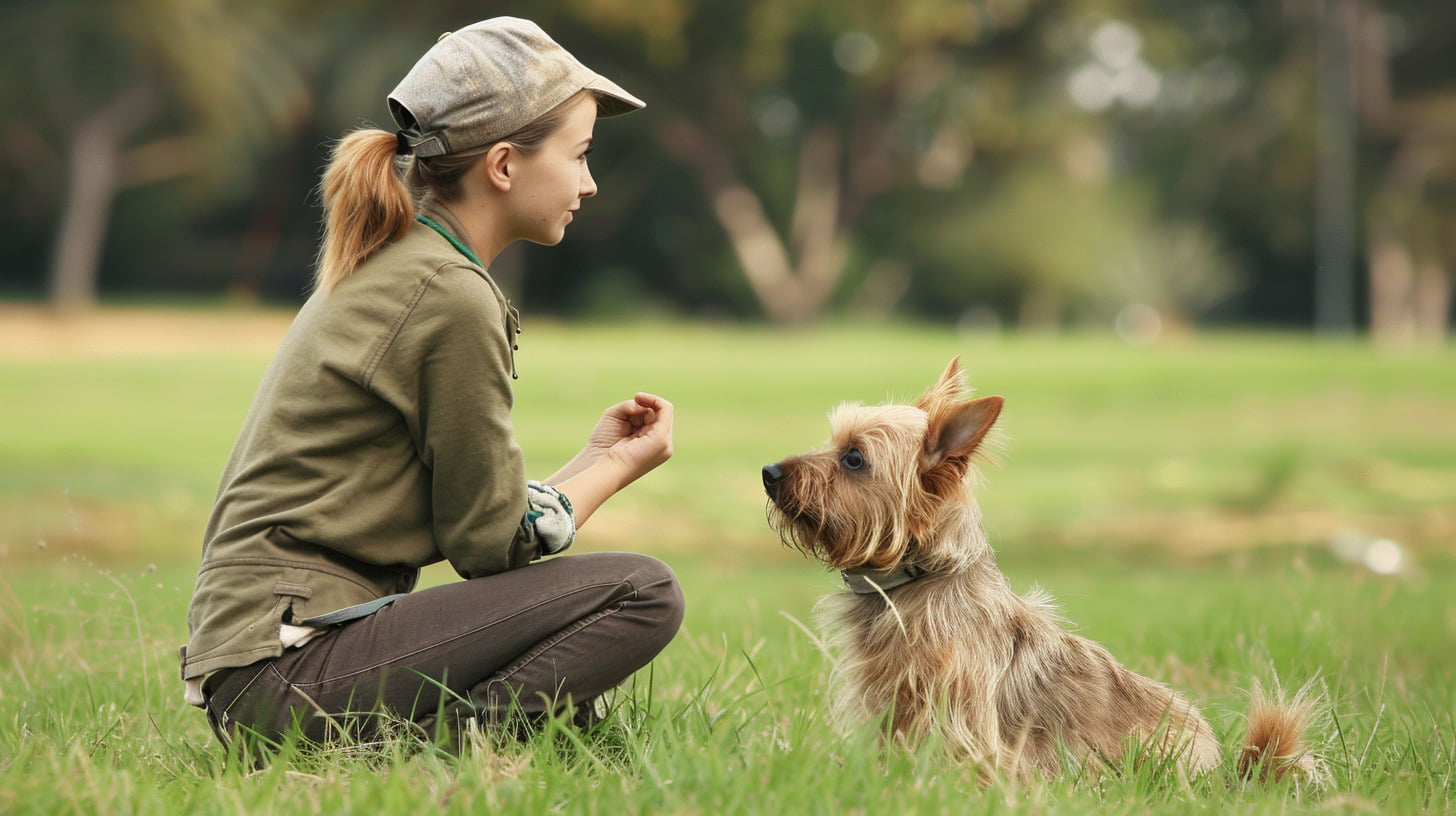Did you know that dogs, just like us, sometimes have untapped potential just waiting to be unlocked? Sure, basic obedience training covers the essentials like “sit” and “stay,” but there’s a whole world of specialized training that could transform your furry companion! Think of it like this: some dogs are born athletes, others have a knack for comforting people, and some have noses that could rival a detective’s. Specialized training helps them hone their true calling.
Whether you have a rambunctious pup bursting with energy, a shy dog who could use a confidence boost, or you just want to deepen the bond with your four-legged bestie, specialized training might be the answer. Are you ready to discover the Types of dog training methods?
Why Choose Specialized Dog Training?
- Unlocking Hidden Potential: Every dog has natural abilities and instincts, and specialized training helps them shine. For example, a herding breed might find immense satisfaction in agility training, or a scent hound could become a star at tracking work. It’s about finding the thing that makes your dog’s tail wag the hardest!

- Addressing Problem Behaviors: If your dog struggles with things like reactivity, separation anxiety, or excessive fearfulness, seeking out a specialized trainer can make a world of difference. These trainers have the tools and experience to help dogs overcome challenges and build healthy coping mechanisms.

- Reaching Owner Goals: Maybe you dream of competing in dog sports with your furry athlete, or perhaps you need a service dog to assist with daily tasks. Specialized training can make these dreams a reality, turning your dog into your dedicated partner.
- Strengthening the Human-Dog Bond: Working towards a common goal in training creates an unbreakable bond between you and your pup. You’ll learn to communicate better, trust each other more, and develop a relationship so deep it goes beyond words.
Core Specialized Dog Training Disciplines
Service Dog Training
- The Superheroes of the Dog World: Service dogs are more than just pets; they’re highly trained lifelines. They can assist with guiding people with visual impairments, alerting to medical conditions, providing mobility support, and countless other tasks that profoundly improve their handler’s quality of life.
- It’s Not Just Labs & Goldens: While these breeds are common, service dogs come in all shapes and sizes! The key is matching the dog’s temperament and skills to the needs of the handler.
- Rigorous Training: Service dog training is a long and intensive process. It requires dedication, consistency, and the ability to navigate complex public access laws.
Therapy Dog Training
- Sharing the Love: Therapy dogs bring joy and comfort to people in hospitals, schools, nursing homes – anywhere a little extra furry love is needed.
- All About Temperament: The best therapy dogs are calm, friendly, and love being around all kinds of people. They need to be patient, gentle, and adaptable to different environments.
- The Benefits are Huge: Therapy dogs bring smiles, reduce stress, and even provide a sense of normalcy in challenging situations. The love they give is truly healing.
Detection Dog Training
- Noses that Know: Detection dogs have superpowers – their incredible sense of smell! They can be trained to find things like drugs, explosives, agricultural pests, and even certain medical conditions.
- The Science of Scents: Dogs have millions more scent receptors than us, and their brains are wired to process smells with amazing accuracy. Detection dog training harnesses this natural ability.
- A Team Effort: Detection dogs and their handlers form a close bond, working together seamlessly. Training requires dedication, precision, and a love of puzzle solving.
Search and Rescue Dog Training
- Real-Life Heroes: Search and rescue dogs play a vital role in finding missing people in wilderness areas, disaster zones, and more. These dogs are driven, athletic, and incredibly focused.
- Specialties Within the Field: There are different types of search and rescue dogs, such as trailing dogs that follow a specific scent, air scent dogs who detect human smell in an area, or even dogs trained for avalanche or water rescue.

- A Calling, Not Just a Job: Search and rescue work is demanding and requires immense dedication from both the dog and handler. But the rewards of saving lives are immeasurable.
Emerging Specialized Training Areas
The world of specialized dog training is constantly evolving, offering new and innovative ways for dogs to help humans and make a difference. Here’s a glimpse into a few fascinating emerging areas:
- Canine Conservation Training: Dogs have incredible noses, and they’re being put to good use protecting wildlife! Some are trained to detect invasive species, track endangered animals, and even sniff out poacher’s traps.
- Animal Assisted Play Therapy: This emerging field combines the power of play with the therapeutic benefits of interacting with dogs. It’s particularly helpful for children facing emotional or behavioral challenges.
- Urban Detection Dogs: These specially trained dogs help keep cities safe. They’re able to detect explosives, weapons, or other hidden dangers in complex urban environments with bustling crowds and distractions.
Finding the Perfect Fit for You and Your Dog
Choosing the right specialized training is a big decision, and it’s essential to find one that’s a great fit for both you and your dog. Here’s how to make an informed choice:
Matching the Training Method and the Trainer:
- Ask about their approach: Do they rely on positive reinforcement? How do they handle challenges or setbacks?
- Observe a class: Does the trainer seem patient and kind? Do the dogs look happy and engaged?
- Don’t be afraid to interview multiple trainers: Find one who aligns with your values and goals.
Breed Considerations: While any dog can benefit from training, some breeds are naturally predisposed to certain types of work.
- Research your dog’s breed traits: Are they a hunting breed, a herder, or a companion breed? This will give you clues about what they might enjoy.
- Consider your dog’s personality: Are they high-energy, shy, or super social? Some training types might be a better fit than others.
Setting Realistic Expectations:
- Training takes time: Be prepared to commit to regular sessions and practice at home.
- It’s an investment: Specialized training can be more expensive than basic obedience, but the benefits can be life-changing.
- Individual differences matter: Each dog learns at their own pace. Celebrate progress, not perfection!
It’s a Lifelong Journey: Even after your dog completes specialized training, it’s important to maintain their skills with ongoing reinforcement at home. This will deepen your bond and ensure your dog continues to thrive.
Conclusion
The world of specialized dog training is filled with incredible possibilities. Whether your pup is an energetic athlete, a shy companion in need of confidence, or a potential hero-in-training, there’s a path waiting to be discovered.
By choosing the right training and committing to the journey, you’ll unlock your dog’s full potential and strengthen your bond with them beyond what you ever thought possible. So, what are you waiting for? The adventure starts now!
FAQs
What’s the difference between a service dog and a therapy dog?
Service dogs are individually trained to perform specific tasks for a person with a disability. They have special public access rights protected by law. Therapy dogs, along with their handlers, provide comfort and support in places like hospitals and schools. They do not have the same legal access rights as service dogs.
How do I find a reputable trainer for specialized dog training?
Look for the following signs in a reputable trainer:
- Relevant certifications or memberships in professional organizations
- Focus on positive reinforcement methods
- Clear communication and willingness to answer questions
- Prioritizes your dog’s well-being
- Offers testimonials or references from past clients
Can any breed succeed in specialized training?
While certain breeds have predispositions for specific tasks (retrievers for hunting, hounds for scent work), a dog’s individual drive, temperament, and trainability are more important than their breed. A qualified trainer can help assess your dog’s potential for different types of specialized training, regardless of whether they are a mixed breed or purebred.
How much does specialized dog training cost?
The cost of specialized dog training varies depending on factors like the type of training, location, trainer’s experience, and whether it’s group or private instruction. It’s best to contact trainers directly for pricing estimates, but expect it to be more expensive than basic obedience classes.
Can specialized training help dogs with severe behavioral problems, or is it only for dogs with no issues?
Specialized behavioral modification, often working with a veterinary behaviorist or certified trainer who specializes in behavior, can address serious issues like aggression, severe anxiety, or phobias. It’s important to seek out qualified professionals who prioritize humane and effective treatment methods.

My job is to make sure every fact is right and every article is a joy to read. I’m kind of like a dog trainer for information – I make it behave!


